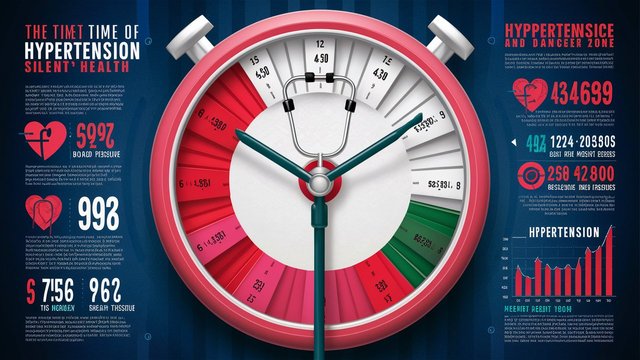Understanding Hypertension: A Silent Threat to Heart Health
Introduction:
High blood pressure, also known as hypertension, is a pervasive yet often silent condition that poses a significant threat to heart health. It affects millions worldwide and is a leading risk factor for heart disease and stroke. Despite its prevalence, hypertension often goes undetected until serious complications arise. Understanding its causes, effects, and management is crucial for safeguarding cardiovascular well-being.

The Silent Killer:
Hypertension earned its moniker as the "silent killer" because it typically presents no symptoms until it reaches dangerous levels or causes complications. This stealthy nature underscores the importance of regular blood pressure monitoring, especially for individuals with risk factors such as obesity, sedentary lifestyle, poor diet, and family history of hypertension.
The Role of Blood Pressure:
Blood pressure measures the force of blood against the walls of arteries as the heart pumps it throughout the body. It consists of two numbers: systolic pressure (the force when the heart beats) and diastolic pressure (the force when the heart rests between beats). A reading of 120/80 millimeters of mercury (mm Hg) is considered normal, while consistently higher readings indicate hypertension.
Risk Factors and Causes:
Several factors contribute to hypertension, including genetics, age, lifestyle choices, and underlying health conditions. Excessive salt intake, alcohol consumption, smoking, stress, and lack of physical activity can elevate blood pressure over time. Additionally, conditions like diabetes, kidney disease, and sleep apnea may exacerbate hypertension.
Consequences of Untreated Hypertension:
Unchecked hypertension can lead to serious health complications, including:
1 Heart disease: High blood pressure strains the heart, increasing the risk of coronary artery disease, heart attack, and heart failure.
2 Stroke: Hypertension damages blood vessels in the brain, raising the likelihood of a stroke caused by a blood clot or bleeding.
3 Kidney damage: Prolonged hypertension can impair kidney function, leading to kidney failure or the need for dialysis.
4 Vision loss: Elevated blood pressure can damage the blood vessels in the eyes, potentially causing vision problems or blindness.
5 Aneurysm: Weakened blood vessel walls may develop bulges (aneurysms) that can rupture and cause life-threatening internal bleeding.
Managing Hypertension:
Fortunately, hypertension is manageable through lifestyle changes, medication, or a combination of both. Lifestyle modifications such as adopting a heart-healthy diet rich in fruits, vegetables, whole grains, and lean proteins, reducing sodium intake, limiting alcohol consumption, quitting smoking, and engaging in regular exercise can help lower blood pressure. In some cases, healthcare providers may prescribe medications like diuretics, ACE inhibitors, beta-blockers, or calcium channel blockers to control hypertension.
Conclusion:
Hypertension remains a prevalent yet preventable risk factor for heart disease and stroke. Awareness, early detection, and proactive management are essential for maintaining heart health and reducing the burden of hypertension-related complications. By making lifestyle changes and seeking medical guidance when needed, individuals can effectively control blood pressure and mitigate its potentially devastating effects on cardiovascular well-being.